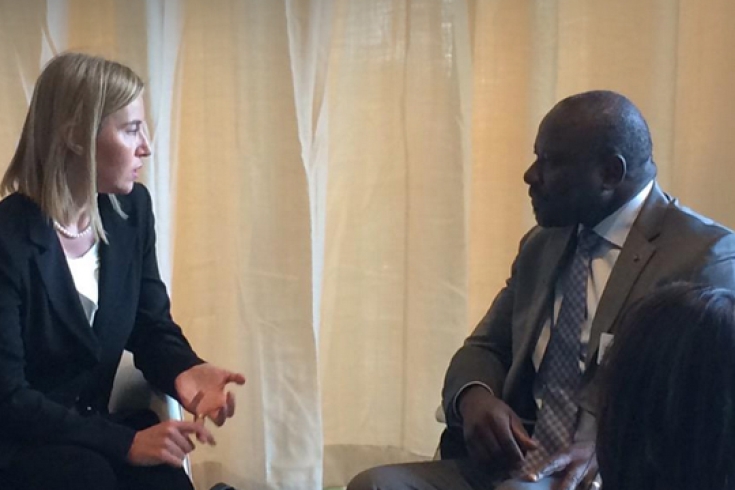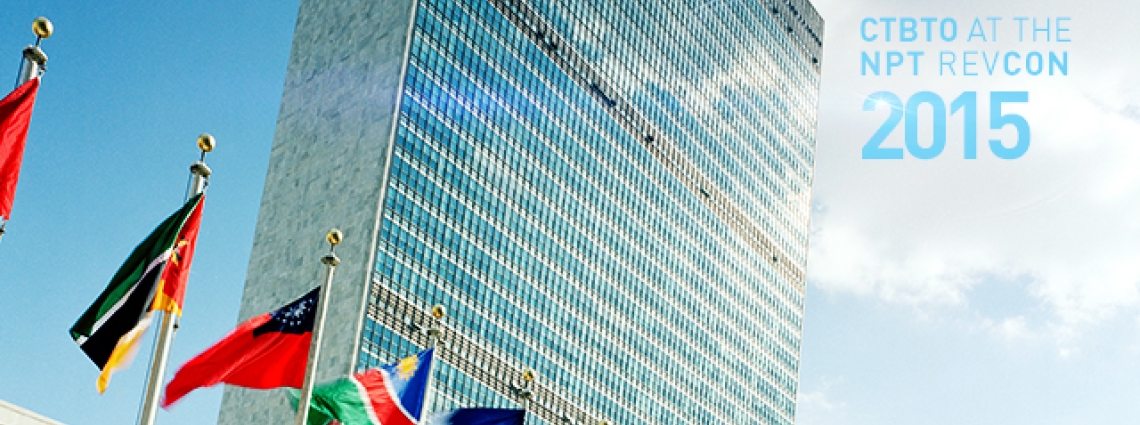NPT Review Conference: support for the CTBT voiced over 100 times
In his opening statement to the conference (delivered by Deputy Secretary-General Jan Eliasson), UN Secretary-General Ban Ki-moon warned that "Instead of a Comprehensive Nuclear Test-Ban Treaty in force or a treaty banning the production of fissile materials for nuclear weapons, we see expensive modernization programmes that will entrench nuclear weapons for decades to come."
Mere words of support without real action will not suffice. Bringing the CTBT into force is the responsibility of all NPT States Parties.
In a statement delivered by Mohammad Javad Zarif, Foreign Minister of Iran, the Non-Aligned Movement (NAM) asserted that: "The improvement of existing nuclear weapons and development of new types of nuclear weapons violate the commitments undertaken by the nuclear-weapon States at the time of the conclusion of the Comprehensive Nuclear-Test-Ban Treaty." In a later statement, the NAM added that: "We stress the significance of achieving the universal adherence to the Comprehensive Nuclear-Test-Ban Treaty and realizing its entry into force...To strongly support a comprehensive ban on all forms of nuclear-weapon tests without exception, as well as any nuclear explosion, and reaffirm the importance of such a ban in the realization of objectives of the Non-Proliferation Treaty."
In the margins of the conference, Executive Secretary Zerbo met with Mogherini, who confirmed her willingness to maintain her membership in the GEM. They also agreed to explore the possibility of the European Union hosting a GEM meeting on the twentieth anniversary of opening up for signatures of the CTBT in 2016, see European Commission's website.

Executive Secretary Lassina Zerbo met with the EU's High Representative for Foreign Affairs and Security Policy, Federica Mogherini, on the margins of the conference.
We are working closely with the Preparatory Commission for the CTBT Organization in Vienna on the development of the Treaty’s verification regime, including its International Monitoring System, International Data Centre, and On-Site Inspection. Since the 2010 Review Conference, we have contributed extensively to the development of the Treaty’s on-site inspection element, supplying personnel, equipment, and research. This has been in addition to our long standing efforts to reinforce the organization’s detection capability through contributions in-kind and expert participation in Working Groups. Against this backdrop, we welcome the highly successful Integrated Field Exercise in Jordan late last year. We also call for all signatories to support efforts to complete the necessary preparation for the effective implementation of the CTBT’s verification regime on its entry into force. In this regard, we recall our joint statement, issued following the 2015 P5 London Conference, on minimizing the impact of medical isotope production on the global radioactive monitoring activity, while recognizing that medical isotope production is critically important."
6 May 2015
